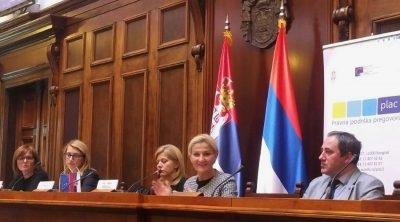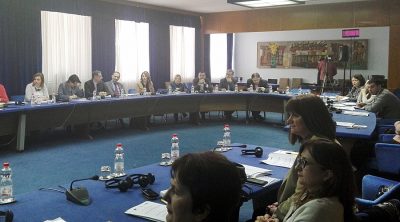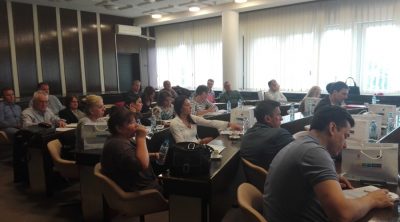Based on the Screening Report for Chapter 3 – Right of Establishment and Freedom to Provide Services, Serbia needs to prepare a comprehensive strategy for alignment with the professional qualifications acquis. The strategy should cover the necessary reforms, in terms of legislative alignment and institutional capacity building, but also adjustments to the training of doctors, dentists, nurses responsible for general care, midwives, pharmacists and veterinary surgeons necessary to comply with the minimum training requirements determined by the Directive 2005/36/EC and Directive 2013/55/EU.
In order to achieve full harmonisation of the national legislation with the acquis, the PLAC II Project assisted the Ministry of Health to assess the level of compliance of both new draft legislation and the legislation in place, to create a general framework of the system for recognition of professional qualifications and to define further steps for harmonisation in this area in accordance with the provisions of the NPAA.
Specifically, the new Draft Law on Health Care and the Law on Chambers of Healthcare Professionals were analysed in terms of compliance with the provisions of relevant directives, and proposals for necessary amendments were drafted. The PLAC II Project Expert, Marta Sjeničić, also reviewed related secondary legislation currently in force and developed draft proposals for amendments. These by-laws include the Rulebook on Specialisations and Sub-specialisations of Healthcare Professionals and Healthcare Associates, the Rulebook on Detailed Conditions for Providing Healthcare Services in Healthcare Institutions and other Healthcare Providers, the Rulebook on Conditions and the Way of Internal Organization of Health Institutions, and the Rulebook on Detailed Conditions on Issuing, Renewing and Revoking Licenses to the Members of the Chambers of Healthcare Professionals.
In addition to this, the comparative legal analysis related to recognition of foreign medical professional specialisations was carried out, as the basis for further discussion on this issue, at the national level.




